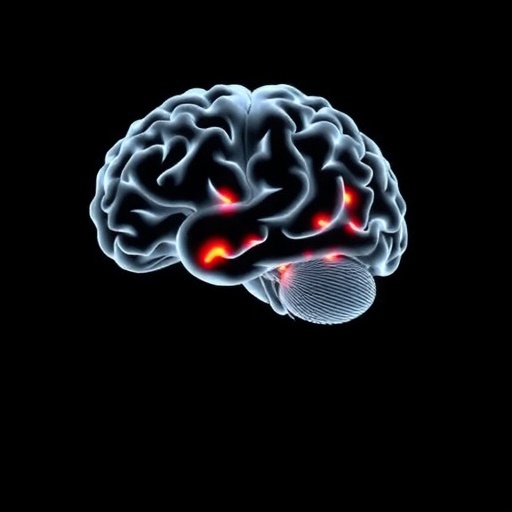In the evolving landscape of psychiatric research, agoraphobia stands as a complex anxiety disorder characterized by intense fear and avoidance of situations where escape might be difficult or help unavailable. Historically, agoraphobia has often been studied in the context of comorbid psychiatric conditions, such as panic disorder or depression, making it challenging to isolate its unique cognitive and functional impacts. However, a groundbreaking study published in BMC Psychiatry in 2025 has shifted the focus to agoraphobia devoid of additional psychiatric comorbidities, shedding new light on the disorder’s intrinsic mechanisms and its effect on daily functioning.
This recent investigation, conducted by Korkmaz, Helvacı Çelik, and Şimşek, delves into the intricate relationship between agoraphobia, metacognitive beliefs, and functional capacity. Metacognition—the awareness and regulation of one’s own thought processes—has increasingly been recognized in cognitive science for its role in psychiatric illnesses. Dysfunctional metacognitive patterns can exacerbate maladaptive responses, yet their specific contribution to agoraphobia remained underexplored until now. By examining these mechanisms in isolation from other psychiatric factors, the study provides a refined lens through which to understand agoraphobia’s complexity.
The research cohort comprised two groups: seventy individuals diagnosed with agoraphobia without any accompanying psychiatric disorders, and an equally sized control group of healthy participants. This deliberate selection ensured that the findings pertained exclusively to agoraphobia, unfettered by confounding conditions that could obscure the data. Both groups underwent comprehensive evaluations covering sociodemographic variables, symptom severity, metacognitive beliefs, levels of depression and anxiety, and functional performance across diverse domains.
Quantitative analyses revealed striking contrasts between the two cohorts. Individuals with agoraphobia demonstrated significantly elevated pathological metacognitive beliefs, highlighting their tendencies towards dysfunctional thinking styles like rumination and excessive worry about uncontrollability of thoughts. These metacognitive distortions were accompanied by heightened anxiety and depressive symptoms, despite the absence of formal comorbid diagnoses, underscoring the intrinsic emotional burden carried by agoraphobia itself.
Furthermore, functional assessments revealed that agoraphobic participants experienced pervasive impairments in everyday activities, ranging from social engagement to occupational performance. The severity of these impairments was not only statistically significant compared to controls but also underscored a practical reality: agoraphobia profoundly disrupts quality of life, even when isolated from other mental health disorders. This crucial insight emphasizes the necessity for targeted therapeutic approaches.
A pivotal aspect of the study involved exploring the mediating role of metacognitive beliefs in the link between agoraphobia severity and functional outcomes. Employing sophisticated mediation analysis while controlling for demographic and clinical variables, the researchers identified that dysfunctional metacognition accounted for approximately 26% of the effect agoraphobia severity exerted on functional impairment. This finding illuminates metacognition as a key cognitive process translating symptom severity into real-world disability.
Cognitively, metacognition functions as the mental executive overseeing how individuals interpret and respond to their own thoughts and emotional states. In agoraphobia, distorted metacognitive beliefs may amplify threat appraisal and avoidance behaviors, creating self-reinforcing cycles of dysfunction. The current research confirms that these maladaptive thought patterns do not merely coexist with agoraphobia but actively drive functional deterioration.
Therapeutically, these insights herald significant implications. Traditional treatments for agoraphobia have predominantly focused on exposure-based cognitive-behavioral therapy (CBT) and pharmacotherapy targeting symptomatic relief. However, this study suggests that incorporating metacognitive interventions—aimed at restructuring faulty beliefs about thinking itself—could potentiate recovery and functional restoration. Such strategies might involve enhancing cognitive flexibility and reducing catastrophic thinking about one’s mental states.
The study also calls attention to the limitations of existing literature, which has often overlooked agoraphobia as a solo diagnosis. By isolating agoraphobia without comorbidities, the researchers advocate for a more nuanced understanding that can inform both research and clinical practice. This approach encourages longitudinal and experimental methodologies to further elucidate causal pathways and optimize interventions.
Importantly, the demonstrated mediatory role of metacognitive beliefs aligns with broader cognitive frameworks that propose mental health disorders involve dysfunctional self-regulation of thought and emotion. Agoraphobia exemplifies how these cognitive distortions manifest behaviorally, reinforcing avoidance and disability. The data from Korkmaz and colleagues thus enrich existing models by quantifying this cognitive contribution with empirical rigor.
Future research directions include extending these findings through neurobiological correlates of metacognition in agoraphobia, examining how brain circuits underpinning self-monitoring and regulation contribute to symptom expression. Additionally, clinical trials testing metacognitive therapy’s efficacy compared to conventional treatments will be vital to translate these theoretical insights into patient benefits.
In summary, the study published in BMC Psychiatry propels the field forward by evidencing that metacognitive dysfunction is not merely an epiphenomenon but a crucial cognitive mediator exacerbating the impact of agoraphobia on functional life. This paradigm shift underscores the importance of targeting metacognitive processes within therapeutic frameworks to alleviate the burden of this debilitating anxiety disorder. As research continues to dissect the cognitive architecture of agoraphobia, a future with more precise and effective treatments comes into sharper focus.
Subject of Research: Investigation of the role of metacognitive beliefs in the severity and functional impairment of agoraphobia without psychiatric comorbidities
Article Title: Examination of metacognitions and functionality in agoraphobia without comorbidities
Article References:
Korkmaz, U., Helvacı Çelik, F.G. & Şimşek, M.H. Examination of metacognitions and functionality in agoraphobia without comorbidities. BMC Psychiatry 25, 541 (2025). https://doi.org/10.1186/s12888-025-07003-y
Image Credits: AI Generated




